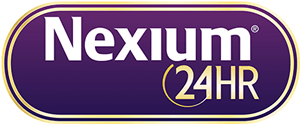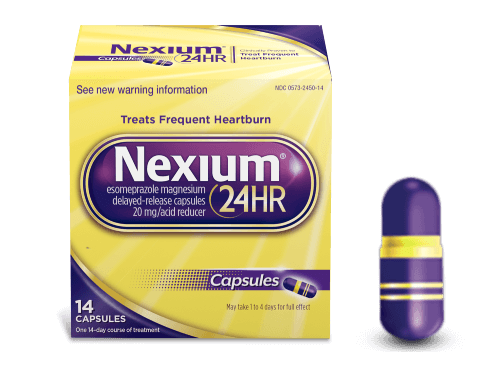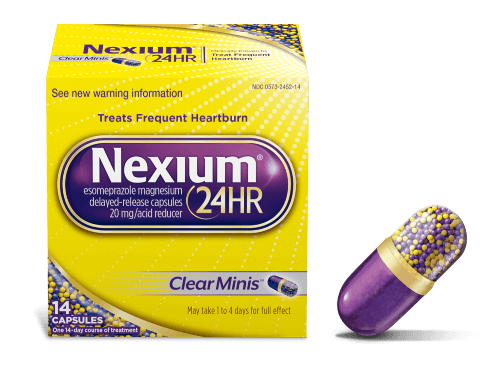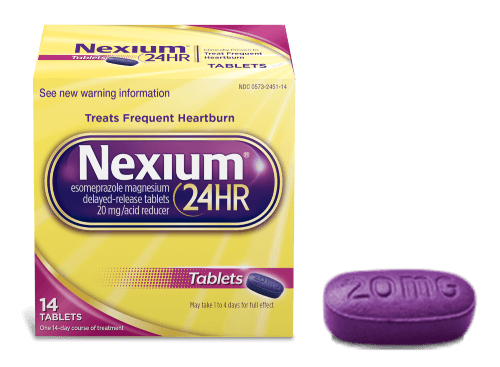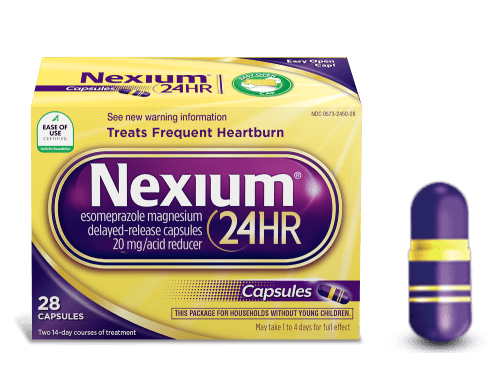Because heartburn can be triggered by lifestyle choices or certain foods, understanding what’s causing your heartburn can be a challenge. Even if you don’t know what caused your flare up, you’re probably looking to get rid of your heartburn at home. There are many methods you can try, such as making healthy lifestyle changes, avoiding your trigger foods and taking medication. Let’s break them down:
What is Heartburn?
Heartburn is easy to understand once you learn how the esophagus functions. Your esophagus is a muscular tube that carries food from your mouth to your stomach. There’s a valve at the end of your esophagus – your lower esophageal sphincter (LES) – that opens and closes to allow food to pass into your stomach. This valve’s job is to keep the contents of your stomach away from your esophagus and throat.
Your stomach produces acids to help break down and digest your food. When your LES doesn’t close properly or weakens abnormally, stomach acid can rise up into your esophagus and throat and cause irritation. This occurrence, known as acid reflux, can lead to the feeling of heartburn.1
Symptoms of Heartburn
The most common symptoms of heartburn include:1
- A burning pain in your upper abdomen or chest that can go away quickly or last for a few hours
- Pain that gets worse when you bend over or lie down
- A burning sensation in the back of your throat
- A bitter taste in the back of your throat
- Difficulty swallowing
- Waking up at night with discomfort
- Your stomach contents rising into the back of your throat (regurgitation)
Lifestyle and Habits
Dietary and lifestyle changes are recommended for patients who are experiencing frequent heartburn or acid reflux.6 In addition to medication and dietary changes, lifestyle changes are a first line of defense against heartburn.
Lifestyle changes that can ease heartburn symptoms include:1,7
- Avoid snug clothing: clothing that fits tightly across your abdomen puts excess pressure on your stomach, which can make acid reflux worse.
- Avoid going to bed with a full stomach: eat your meals at least two-to-three hours before you go to bed or lie down. This allows your body enough time to digest and lowers your risk of feeling heartburn.
- Eat slowly: chewing your food well and taking breaks in between bites can help you digest and notice when you’re full.
- Elevate the head of your bed: keeping your head higher than your toes while you sleep is an effective way to reduce heartburn at night. Try to avoid using multiple pillows under your head, however, as this puts excess pressure on your neck.
- Avoid or quit smoking: nicotine is a substance that weakens your lower esophageal sphincter over time.
- Plan your exercise sessions: give yourself at least two hours after eating before hitting the gym.
- Maintain a healthy weight: excess weight puts an additional strain on your stomach, which can cause acid reflux.
- Drink water: drinking water aids in digestion and is good for your overall health.
Trigger Foods
A diet that heavily features triggering foods can exacerbate heartburn, which is why your diet should be taken into consideration if you’re trying to treat your symptoms. Certain foods can trigger heartburn, and factors such as when you eat, how you eat, and the volume of food you consume can also play an important role in regulating heartburn.
Certain food and drink can cause heartburn symptoms in some people, such as:1,5
- Fatty foods like bacon or sausage
- Onions
- Mint or peppermint
- Chocolate
- Fried food
- Fast food
- Tomato products like ketchup
- Spicy food
- Alcoholic beverages
- Citrus fruit and juice
- Caffeinated drinks like coffee and soda
- Cheese
- Processed food
Medications
Over the counter medicines work to neutralize acid or to halt acid production by the stomach.
- Antacids
If you need to soothe your occasional heartburn quickly, you might want to take an antacid for immediate, temporary relief from your symptoms. While antacids work quickly, the effects wear off after one to three hours. Antacids are made using salts of calcium, magnesium, and aluminum, and work by neutralizing the acid in your digestive tract on contact.
- Proton Pump Inhibitors
If you suffer from symptoms of frequent heartburn – heartburn that occurs two or more days a week – then consider an H2 Blocker or a Proton Pump Inhibitor (PPI) such as Nexium 24HR to treat your symptoms.
PPIs, like Nexium 24HR, work by turning the pumps in your stomach from “on” to “off” to stop the production of acid at the source.
Because Nexium 24HR stops acid at the source, just one pill a day gives you 24 hours of protection against heartburn. Use as directed for 14 days to treat frequent heartburn. Do not take for more than 14 days or more often than every 4 months unless directed by a doctor. Not for immediate relief.
Source Citations:
- Heartburn: Causes, Symptoms & Treatment. Cleveland Clinic. https://my.clevelandclinic.org/health/diseases/9617-heartburn-overview.
- Gastroesophageal reflux disease (GERD) - Symptoms and causes. Mayo Clinic https://www.mayoclinic.org/diseases-conditions/gerd/symptoms-causes/syc-20361940.
- Gastroesophageal Reflux Disease (GERD). Johns Hopkins Medicine. https://www.hopkinsmedicine.org/health/conditions-and-diseases/gastroesophageal-reflux-disease-gerd.
- Heartburn or heart attack: When to worry. Mayo Clinic. https://www.mayoclinic.org/diseases-conditions/heartburn/in-depth/heartburn-gerd/art-20046483.
- GERD Diet: Foods That Help with Acid Reflux (Heartburn). Johns Hopkins Medicine. https://www.hopkinsmedicine.org/health/wellness-and-prevention/gerd-diet-foods-that-help-with-acid-reflux-heartburn.
- Irene Martinucci, Nicola de Bortoli, Maria Giacchino et. al. (2014). Esophageal motility abnormalities in gastroesophageal reflux disease. World Journal of Gastrointestinal Pharmacology and Therapeutics vol. 5,2 . doi: 10.4292/wjgpt.v5.i2.86 https://www.ncbi.nlm.nih.gov/pmc/articles/PMC4023328/.
- Heartburn - Diagnosis and treatment. Mayo Clinic. https://www.mayoclinic.org/diseases-conditions/heartburn/diagnosis-treatment/drc-20373229.
- Blake H. Salisbury; Jamie M. Terrell. (2021). Antacids – StatPearls. https://www.ncbi.nlm.nih.gov/books/NBK526049/.
